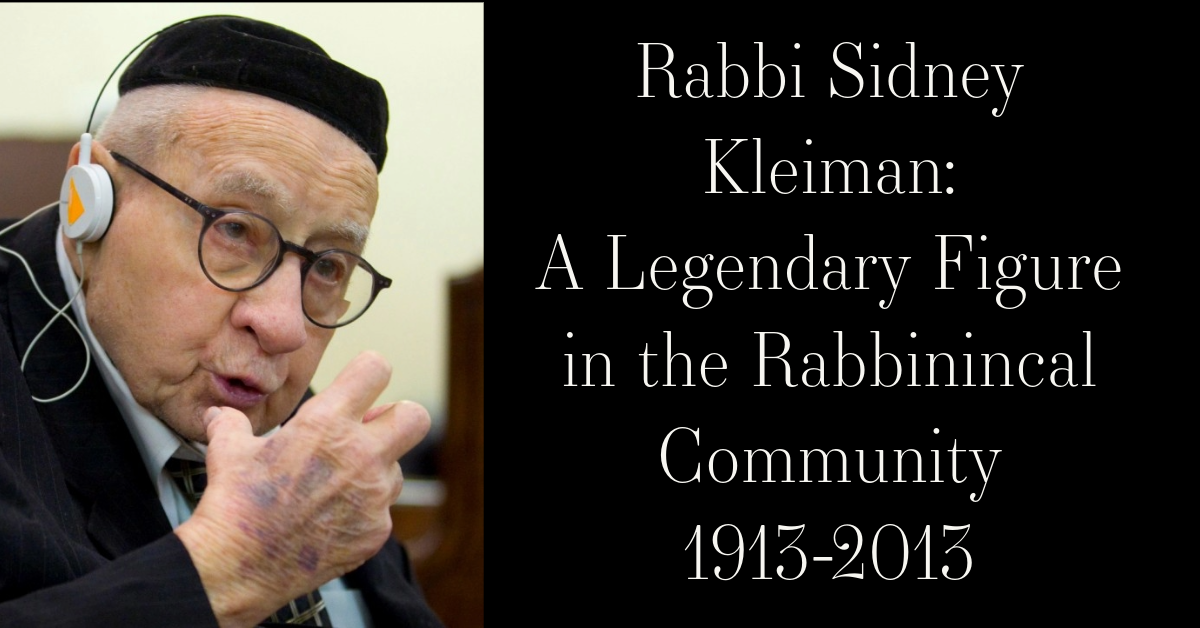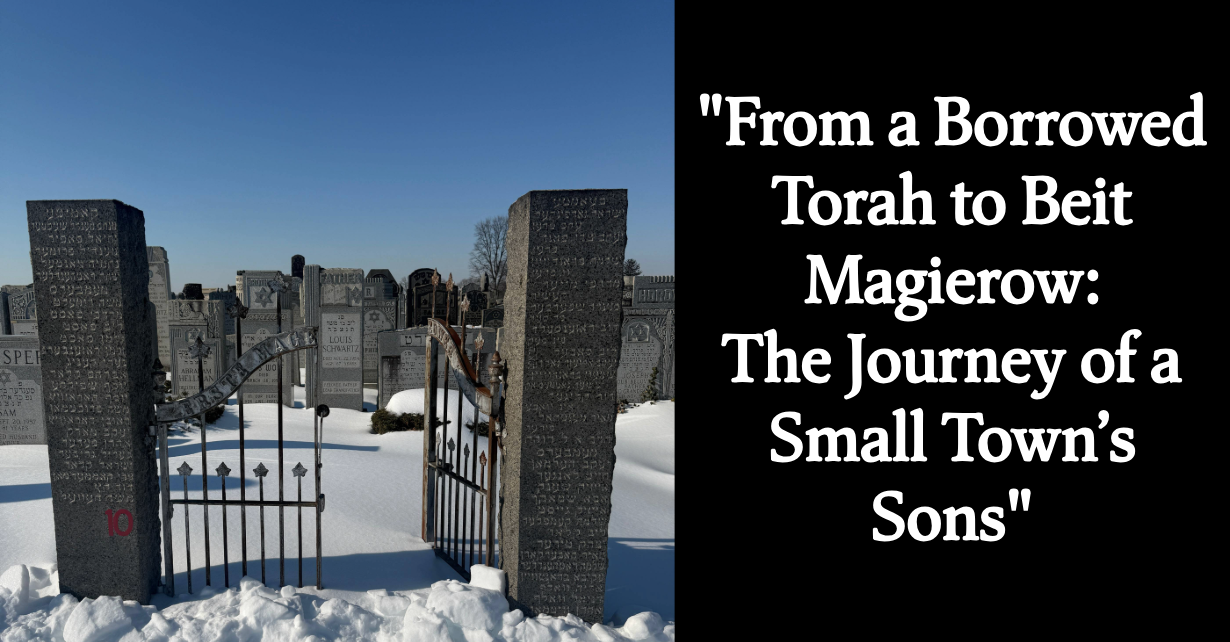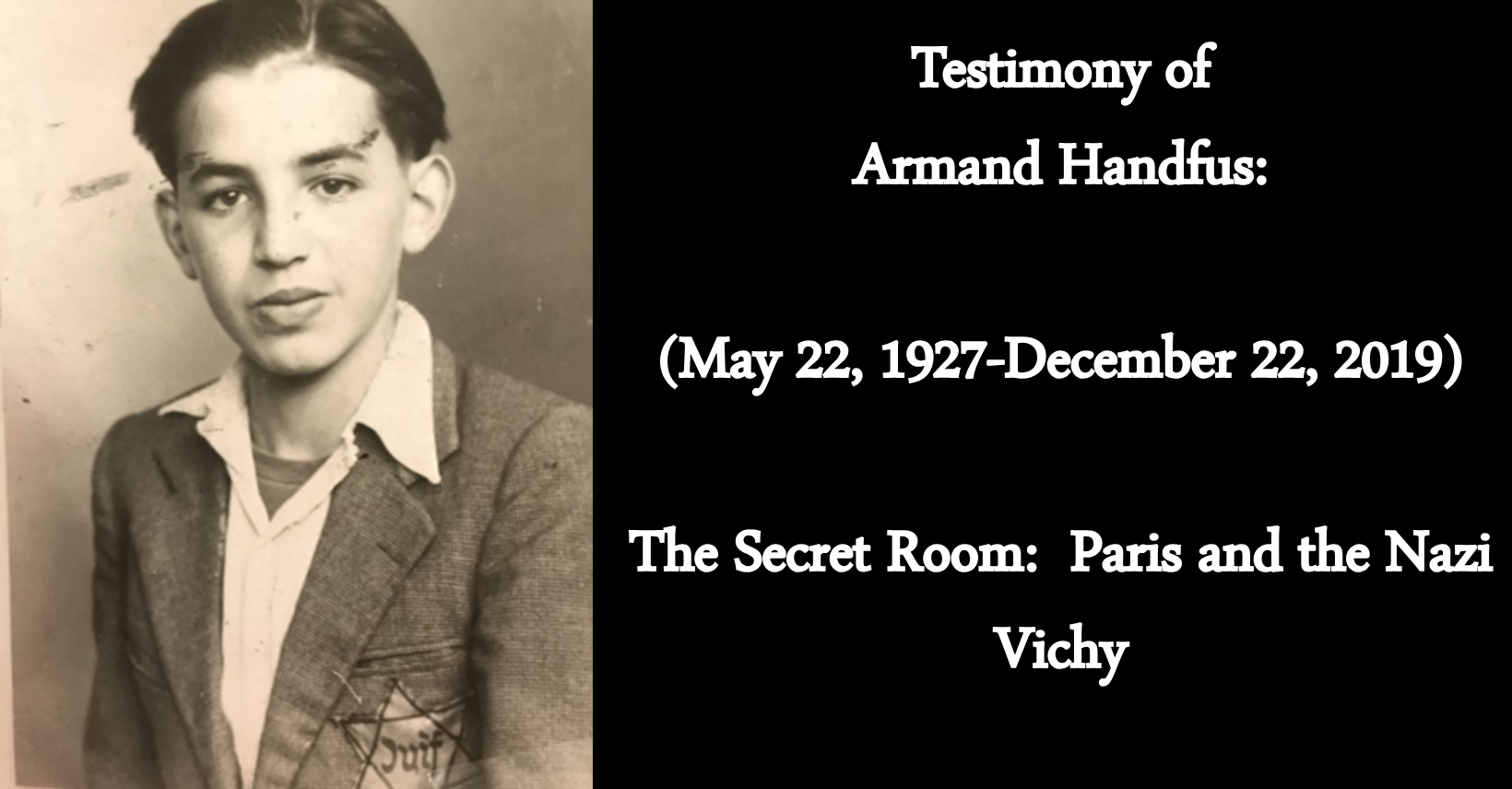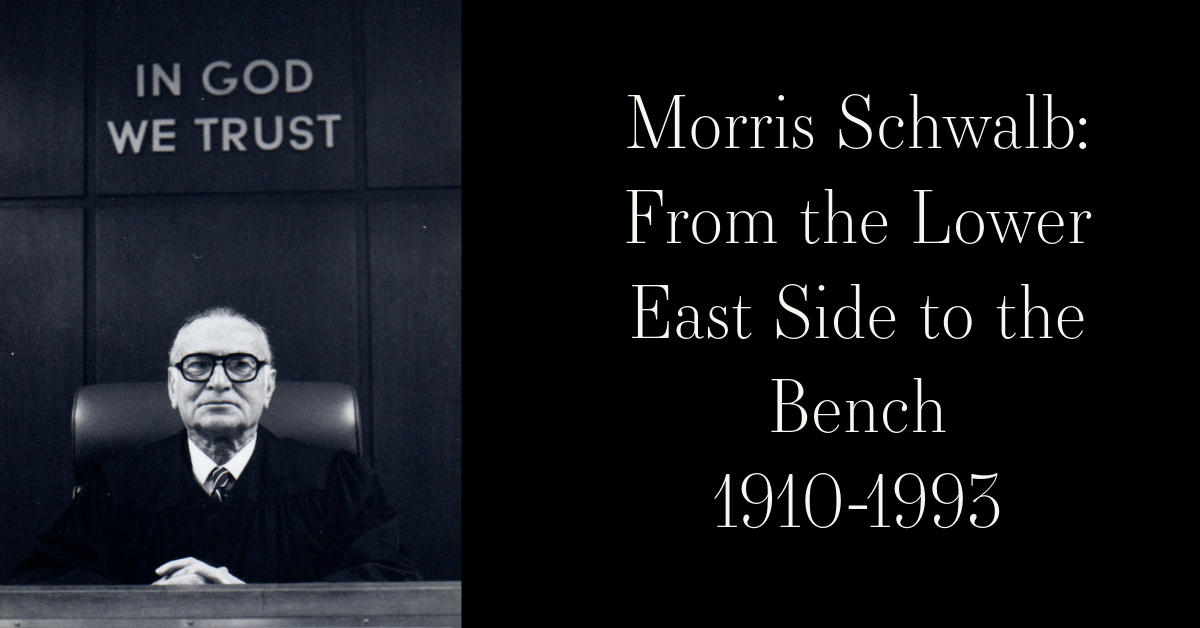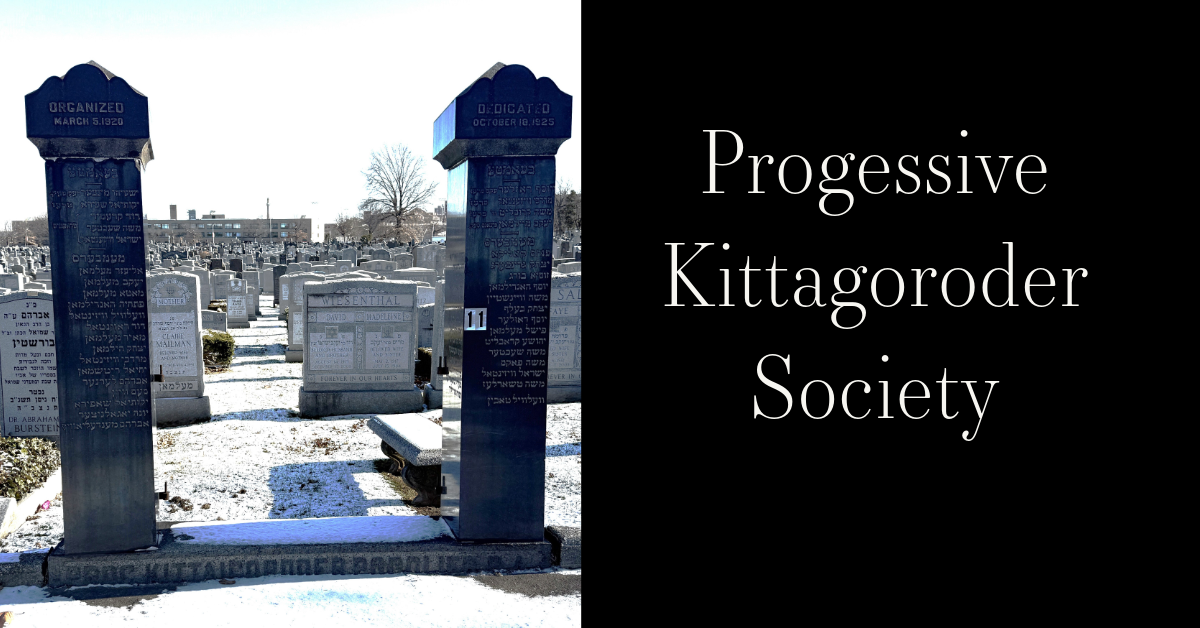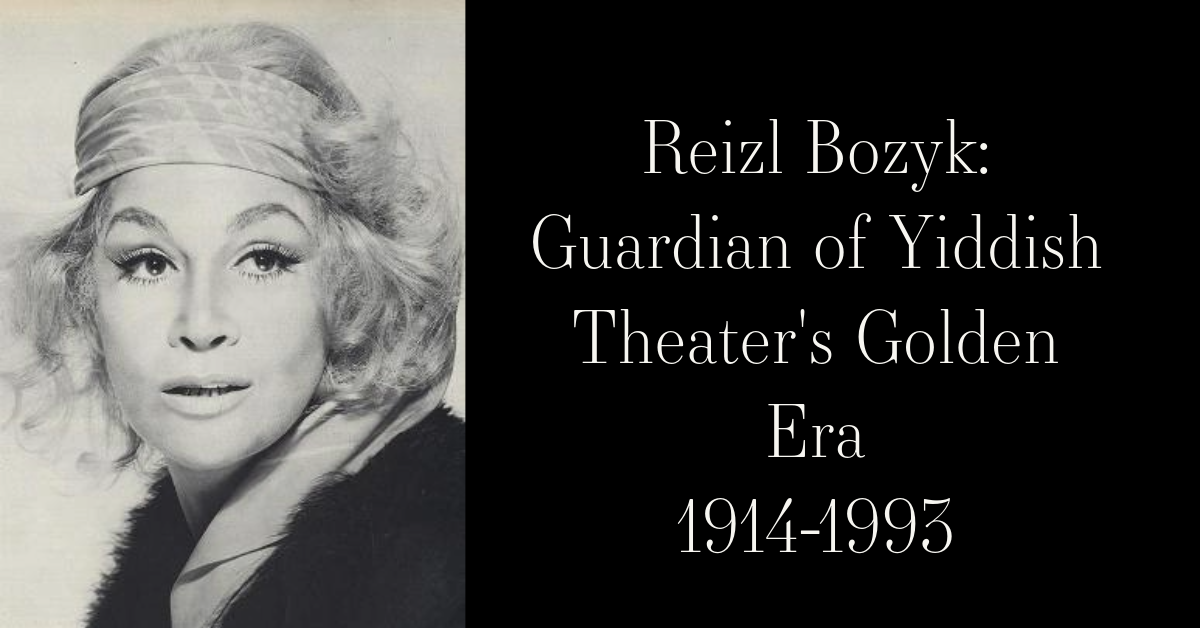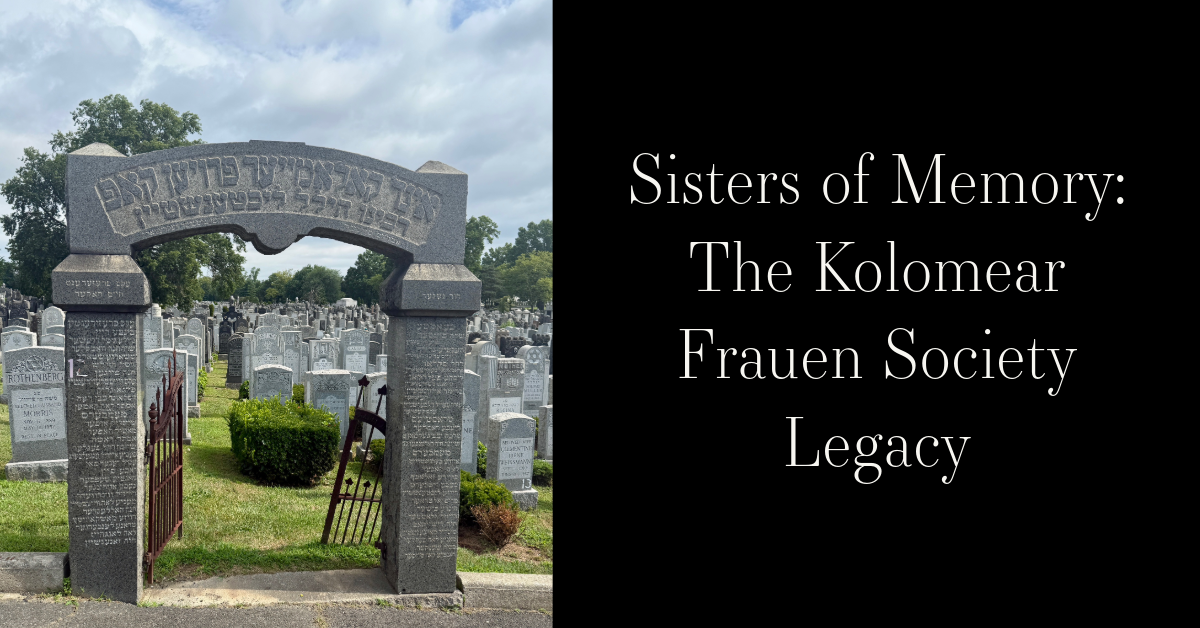Story Summary:
Rabbi Sidney Kleiman was a Rabbi who was known for his inspiring speeches,community service, and his ability to relate to Jews of all ages and from all walks of life. He was both the longest serving and the oldest active Congregational Rabbi in the United States. Rabbi Kleiman was at thehelm of Congregation Adereth El for close to 60 years. He succeeded in building up the Shul by bringing many people into the fold and introducing
new Congregants to the beauty and faith within the walls
of Adereth El.
Rabbi Sidney Kleiman:
A Legendary figure in the Rabbinic Community
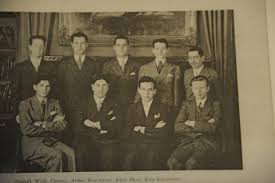
Rabbi Sidney Kleiman was born in Brooklyn in 1913. He grew up in a poor family in the South Bronx. Rabbi Kleiman’s parents expected him to become a lawyer. However, Rabbi Kleiman had other ideas. The Rabbi from the shul he attended was Rabbi Avraham Naftali Gallant. Rabbi Gallant inspired Rabbi Kleiman through his talks, to enter the rabbinate. Rabbi Kleiman revealed that his family thought he was crazy and told him that the rabbinical profession was not suitable for an American boy. However, Rabbi Kleiman insisted on becoming a Rabbi.
Rabbi Kleiman attended Yeshiva University and also worked in an effort to assume some of the families’ financial burdens since his father had a leg amputation and was not gainfully employed. Rabbi Kleiman became a stationary salesman. As he walked to Yeshiva every morning (he had no money for a bus), Rabbi Kleinman stopped into the small shops and candy stores along the way and tried to sell the shopkeepers stationary. If Rabbi Kleiman was successful and made enough money, then he would also be able to pay for public transportation home.
Rabbi Kleiman studied at City College, Columbia University and Yeshiva University where he received his B.S. in 1935. He also did post graduate work at Dr. Bernard Revel Graduate School. Rabbi Kleiman received semicha (Rabbinical ordination) from Rav Moshe Soloveichik at the Rabbi Isaac Elchanan Theological seminary. He described Rabbi Soloveichik as “a great man,” but added, “he was not as strict as his son, Yosef Ber.” Rabbi Kleiman also remembers the school’s founder, Rabbi Dr. Bernard Revel. About him, Rabbi Kleiman stated, “He was a big scholar and very dedicated to the Yeshiva. He liked me and encouraged me.”
Rabbi Kleiman’s first job was in a shul in the Bronx. Every day, the Rabbi would first take the train to the Lower East Side and then drop his sons off by the Yeshiva. People warned Rabbi Kleiman that maintaining such a schedule would prove to be untenable. This proved to be true and therefore when a position opened in Manhattan at Congregation Adereth El in 1921, Rabbi Kleiman applied for the job. The week that Rabbi Kleinman came in for his trial period at Adereth El was the week that Neville Chamberlain had announced his peace deal with Hitler and declared “peace in our time.” Rabbi Kleiman gave a sample sermon in which he criticized Chamberlain. The congregation was impressed with the lecture from this young Rabbi and Rabbi Kleiman was subsequently offered the job at Adereth El.
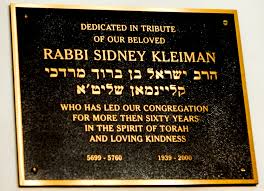
Congregation Talmud Torah Adereth El, abbreviated as Adereth El, was to become New York’s oldest continually used shul. It was located in the Murray Hill section of Manhattan, was founded by German Jews in the fall of 1857 and was eventually taken over by Russian immigrants. The Orthodox Jewish Congregation constructed its current building at 133 East 29th Street in the year 1864. The Shul underwent a renovation in 1945, followed by another renovation in 1994 which left little of the original building except the Star of David. The sermons were given in Yiddish. After Rabbi Kleiman gave his initial Yiddish sermon, a congregant told the Rabbi that American kids don’t understand Yiddish and they requested that the Rabbi speak in English. Rabbi Kleiman agreed, although there was some opposition. Rabbi Kleiman described how a man named Mr. Goldberg walked out of the Rabbi’s English sermon and “made a whole tumult.” Nevertheless, most of the congregation supported Rabbi Kleiman. In the neighborhood of the Shul, there were not a lot of Jews and only a few of them were observant. The Rabbi related that Orthodox rabbis were trying to get the American youth back to Judaism. Not many Jews were observant; everybody was going away from Judaism.
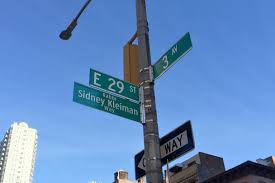
When Rabbi Kleiman took this job, he stated, “when I came here, there was nothing. It was a non-Jewish neighborhood. I had to build it up.” Every day, Rabbi Kleiman was tasked with calling people up so they would have a minyan. The Rabbi stated, “Sunday morning I would call, and they would say, “hey Rabbi, I want to sleep.” Rabbi Kleiman responded saying, “Never mind sleep, come to shul.” Rabbi Kleiman said that he felt that the congregants resented him for these AM calls. Nevertheless, the Rabbi continued this practice, and chuckled when emphatically stating “But that didn’t stop me!”
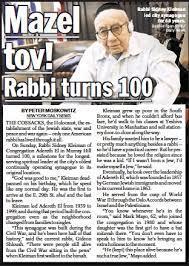
Rabbi Kleiman remained the Rabbi of Congregation Adereth El from 1939 until 1999 which was close to 60 years. He began working as a Rabbi starting from the cusp of World War 11, and through the Oslow Accords, around which point Rabbi Kleiman retired. When Rabbi Kleiman was ready to step down, Rabbi Gideon Shloush joined the shul and Rabbi Kleiman adapted the prestigious title, Rabbi Emeritus. The Rabbi became known as Rabbi Emeritus fifteen years before his passing, Rabbi Kleiman was always the first man in the shul each morning and attended minyanim without fail. Rabbi Kleiman felt that attending Minyanim is the most important part of Judaism and those who attend minyan consistently help Judaism endure. When people told Rabbi Kleiman that he was an inspiration to them, Rabbi Kleiman explained that he was not interested in being a role model. He stated that his last name translates to “Small Man.” Rabbi Kleiman added, “That is what I am. I do my thing, and if people want to follow my example, that’s wonderful.”
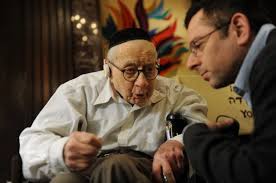
Rabbi Kleiman described how the Great Depression hit the synagogue hard. He remembers that congregants donated coal and suits instead of money. “They donated a suit to the chazzan and shamash, but the shamash resented it saying I don’t want your suit. Give me cash. It was a tough period.”
Rabbi Shua Mermelstein served for one year in a part-time rabbinical role upon Rabbi Shloush’s departure, and then he became the current Rabbi. When Rabbi Kleiman had his 99th birthday, he was thankful for his life saying, “God was good to me.” On his birthday, the Rabbi spent the day as he spent every day prior being first to arrive at the shul and being the last one to leave. Prior to his passing, Rabbi Kleiman continued to give drashos and was known to get up and speak with no script for 10-15 minutes.
In 2006, Rabbi Kleiman received a special citation from the Rabbinical Council of America (RCA) for 67 years of service. Several years prior to receiving the RCA citation, Rabbi Kleiman was also recognized by Bellevue hospital for fifty years of service as their hospital Chaplain. In 2007, Adereth EL marked its 150th Anniversary with lectures, and a dinner at the Battery Park Gardens Restaurant in Battery Park.
On January 6, 2013, in honor of Rabbi Kleiman’s 100th birthday, a gala celebration was held at The Museum of the Jewish Heritage in Battery Park. Rabbi Kleiman received letters and plaques presented by a host of prominent entities including the White House, Senators, Congressmen, Chief Rabbis and various other leaders of the Jewish community. Presentations were made by the executive director of the New York Board of Rabbi’s, Rabbi Joseph Potasnik, renowned defense attorney, Benjamin Brafman and NYC Controller, John Liu. Rabbi Kleiman concluded the event with a powerful speech in both recognition and appreciation of his milestone birthday.
Rabbi Kleiman lived a long life adhering to Torah true Judaism. He once said, “If I wasn’t born a Jew, I’d make myself a Jew.” He noted that there are a sizable number of people in the world that do not tolerate Jews. “Antisemitism remains a persistent concern. People are against us. Antisemitism is hidden, it’s lurking. But we are a creative, dynamic people. We’ll overcome by living a great life; by making everywhere we are, a blessing.”
Since Rabbi Kleiman’s demise, Adereth El is flourishing, just as he had always wanted when he was the Shul Rabbi. During the week, many Jewish businessmen working in the vicinity, daven at the synagogue. Many of the Shul members are students and faculty from the nearby New York University Medical Center. The Shul’s proximity to the hospital also brings in many visitors of the hospital patients for Adereth El’s services. The synagogue typically has multiple weekly baby naming ceremonies due to the large number of labor and delivery visitors. Additionally, since Adereth El is located near Yeshiva University’s Stern College for Women, many Stern girls consistently attend the synagogue’s services.
Rabbi Kleiman’s galvanizing speeches and unique ability to relate to Jews of every generation and a multitude of different backgrounds, made him a renowned figure in the history of New York’s rabbinic community. Rabbi Kleiman passed away in June 2013 at the age of 100. Rabbi Sidney Kleiman was both the longest-serving and oldest active congregational rabbi in the United States. He is buried at Mount Hebron Cemetery in New York.

~ BLOG BY RENEE MEYERS


